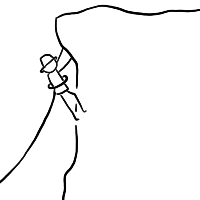 In 2014 the Wyncote Foundation commissioned Lutman & Associates to research digital adoption by legacy cultural institutions. The resulting study, Like, Link, Share: How cultural institutions are embracing digital technology, showcases the awesome creative work of 40 cultural organizations and shares common themes and lessons learned among these leading practitioners.
In 2014 the Wyncote Foundation commissioned Lutman & Associates to research digital adoption by legacy cultural institutions. The resulting study, Like, Link, Share: How cultural institutions are embracing digital technology, showcases the awesome creative work of 40 cultural organizations and shares common themes and lessons learned among these leading practitioners.
When I spoke about the report at conferences and meetings, arts leaders’ responses were frequently that they knew they “should be†engaging digitally, but they feel overwhelmed about beginning. Surprisingly, the most frequent response from arts leaders was not excitement, but instead fear. Fear of missing out. Fear of getting started. Fear of not knowing what to do after beginning. Fear of making mistakes. Fear of not having enough time or money. Fear of incompetence. Fear of adding more stuff to do on top of already busy jobs.
We were intrigued by the intensity and consistency of this reaction and wanted to provide support. As a result, discussions with Wyncote led them to commission Wayfinding and Wandering: Navigating the Digital Engagement Landscape, or Wanderway, for short.
Launching this week, Wanderway is a free online course in seven parts, designed to walk users through the necessary steps toward creative and sustainable digital engagement. The goals of the course are to provide encouragement, build confidence, and offer useful tools and know-how so that arts organizations, artists, and creative small businesses can connect with, engage, and serve more people in the ever-evolving online environment. It is designed with the resource-strapped in mind.
Wanderway is a different kind of course.
Wanderway focuses on engagement and relationship-building. It aims to help you expand your reach and develop substantive interactions with fans, allies, and collaborators using the wide range of digital tools available today. These transformative possibilities are available to those who overcome their fear of digital technology and commit to the process of learning new tools and ways to connect.
There are plenty of courses available that provide technical knowledge and skill-building exercises, such as the Google Analytics Academy, or courses available through Coursera or Khan Academy. Many are written with the assumption of a higher level of basic knowledge and experience on the part of the user.
Also, most existing online courses target sales and marketing objectives – using digital tools to get more money, more transactions. Wanderway was created with the belief that while more contributions or ticket sales can be a by-product of digital engagement, they are not the goal. Engagement can be significantly more meaningful and have greater impact if audiences are treated as conversation partners and collaborators rather than customers and consumers.
Digital engagement as creative practice
Wanderway addresses the emotional life of digital practitioners by approaching engagement as a creative practice. In creative practice we begin, try things, learn, and start again. A beginner’s mind is a necessity and a strength, not a liability. Creative practice expects “mistakesâ€â€”they’re part of the process. Iteration is constant. It’s how we learn. And fear is something most artists and creative workers know a great deal about because it is their constant companion.
Fear doesn’t stop the creative artist. Or as poet Carolyn Forche puts it, “Courage does not mean you are not afraid; courage means a door opens and you walk through.â€
So, open the door and walk through
Wanderway invites your participation. We also invite your feedback. Please check out the course, try the exercises and reflections, read the interviews, and, if you like it, share these resources with others.
Thanks to the amazing collaborators who built the course with me: Beck Tench, independent educator, writer, speaker, and practitioner, whose work explores creativity and experimentation in digital engagement; and Jessica Fiala, company member of Ragamala Dance Company, independent scholar, and colleague.
We’ve had a lot of fun packing the course with tools that are free and accessible to anyone, and getting to know the dozens of artists and organizations whose work we feel privileged to highlight.
